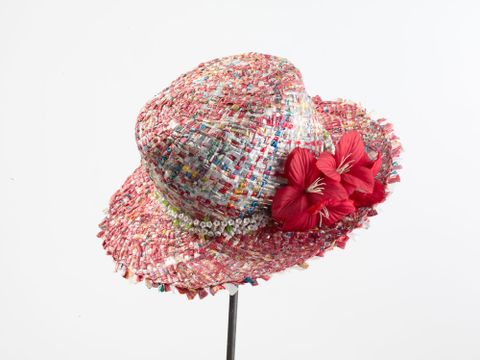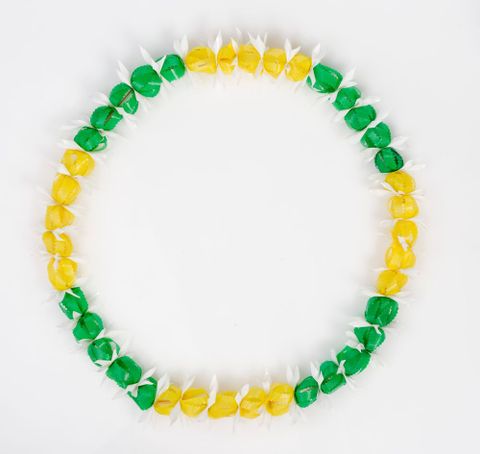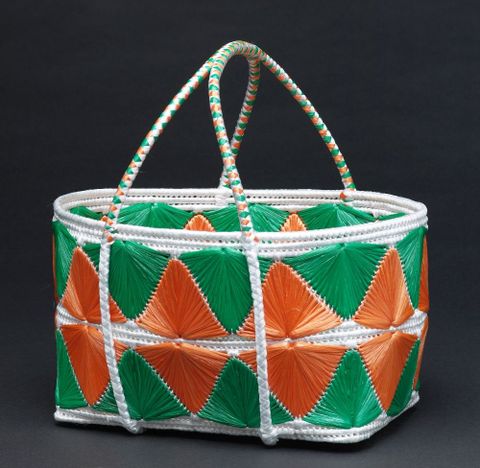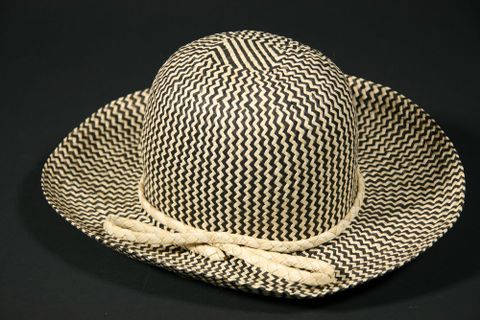To celebrate Vagahau Niue: Niue Language Week (6-13 October 2012), the Pacific Cultures team are highlighting stories about Niue focusing on taoga (treasures) from Te Papa’s collection. Today, in this fourth blog post, we feature this Panama-styled pulou (hat) – a surprisingly rare collectable.

The pulou was made and worn by Moka Poi in Auckland in the 1990s. It is woven from red strips of plastic bread bags and decorated with a headband made from small white plastic flower beads, and two large red synthetic flowers. I claim it as a rare collectable because the bread bags that Moka used to make it are now difficult to come by. Today, most plastic bread bags are of biodegradable variety and have a very short life span. They disintegrate over time. This pulou was made and worn for many years before it was purchased by the museum. It is probably deteriorating but at a much slower rate. This hat is a favourite of mine for the way it demonstrates the response of Niue weavers to new materials and new creative opportunities here in New Zealand. I also like it because we know who made it and it was worn with pride.

The fact that the pulou is made from non-indigenous materials is not unusual. People take aspects of their cultures with them wherever they travel. In New Zealand, skilled practitioners from Niuean communities continue to pass on indigenous art forms such as weaving and hat-making. For several decades now, Niuean weavers in New Zealand have applied their knowledge to working with local materials, such as flax, raffia, and synthetic tubing. The weavers’ ability to adapt and innovate is evident in their use of new materials, creation of new forms, and the new uses they find for the items they create.


Niuean weavers in New Zealand often work in groups. These groups are like fibres, connecting different generations back to their island homelands. They provide a setting where people can share knowledge and interact in their own language. Weaving can be a way to earn money, but, perhaps more importantly, it can build a sense of cultural connection and pride, especially for Pacific people born in New Zealand.
LINK: to watch a youtube clip about the conservation of Pacific artefacts made from recycled plastics at Te Papa click here



